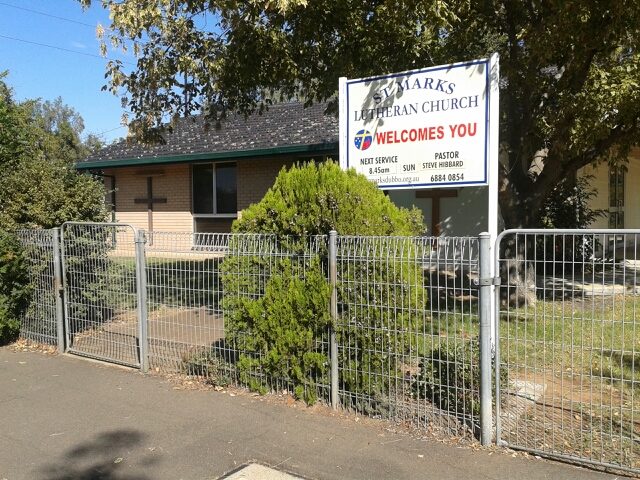Matthew 11:28
“Come to me, all you who are weary and burdened, and I will give you rest”.
           Will give you rest. On the seventh day He rested (Genesis 2:2). In green pastures, by still waters (Psalm 23:1-2).  And from our ancient brother Augustine, “our heart is restless until it rests in you.†All you who are weary, burdened, come to Jesus and receive His rest. It’s a simple statement, easy to hear, easy to remember; but what does it mean and do you believe it?
And from our ancient brother Augustine, “our heart is restless until it rests in you.†All you who are weary, burdened, come to Jesus and receive His rest. It’s a simple statement, easy to hear, easy to remember; but what does it mean and do you believe it?
           All of you who are weary and burdened, hard working and stressed. Is that you? Or do you have everything under control? Is life easy for you? Relaxing? Do you sit back because Christ has done it all, and not worry about the consequences? Are you carefree and lazy, enjoying this life? Then the gospel is not for you. Jesus is not for you, and He is not speaking to you, you may as well stop listening now and go about in your body of death until you die rejecting God, cut off from His people (Romans 7:24). You are the wise and learned that the Lord of heaven and earth has hidden the truth from because, as we heard Jesus say weeks back you think you can see the truth by yourself, but you are blind to the real world (John 9:39).
           But for those of you who are weary and burdened, working hard to better yourself, to help those around you, working yourself to the bone and stressed that you never seem to achieve peace and salvation. Stop, listen. This is how all people live because Adam and Eve twisted and rejected God’s Word. Eating the fruit, God revealed how they were to live, increased pain in childbearing for Eve, and living by the sweat of the brow for Adam (Genesis 3: ). Some seek to earn salvation by what they do and say, by how they act, yet we know how well a group of people show perfect love, we don’t even need the confusion of Babel to divide us (Genesis 11:16-19). Some work to forget what is important, so they can ignore difficult things; but ignoring difficult things, bottling them up can lead to that great weight of depression and despair. Hear and receive God’s Word to you. Your work has failed, you are hopeless and live in a hopeless world. Jesus is speaking to you, weary and burdened, saying come to me and I will give you rest.
           Come to Jesus, cast your burdens on Him (1 Peter 5:7), fall broken on that cornerstone the builders rejected (Matthew 21:44) and take up His yoke that is truly fitting and light for our lasting good. Take up His yoke, and what is that yoke? It is the cross. As He says elsewhere, take up your cross and follow me (Matthew 16:24). If you’ve seen Mel Gibson’s ‘the Passion’ you have some idea of how truly fitting and light the yoke of Jesus is, flogged, bloodied, suffocating, and finally killed. This is what rest in Jesus looks like this side of eternity for us and all who see it. In a very real sense we don’t see what is true, we only hear it through faith, by God’s Word to us, carried by the Holy Spirit. He has revealed the truth to us, not that our faith ends in death on the cross, but rather that Jesus’ death conquers death (Hebrews 2:14; Isaiah 25:8; Hosea 13:14; 1 Corinthians 15:55). One of the greatest fears of humanity is death; the pain, suffering, loss, and all that comes with it. We try hard to save ourselves from death, we make new things to keep ourselves alive, we learn new ways to slow our aging, we continue to fight death even when we have lost all limbs, mind and consciousness, even then we fear death. But weary as we are trying to stop it, burdened as we are by our fear, our grief, Christ presents a different way.
           It is no wonder people reject this way, and continue in weariness and stress, it looks to us horrific, the same as lifting all our COVID restrictions and spiting on everyone we see so that, no one gets the virus. Die that we live? How can that make sense! I’ll let you in on a little secret, it doesn’t really, just as Christians have confessed for 2000yrs, it is a mystery. The mystery of God. The incarnation, that divine and human became one in Jesus. Baptism that we are united with Him in life, death and resurrection. Holy Communion, that we are united in common with Christ and His whole body by His flesh and blood in bread and wine. The holy mysteries of God, honestly weird to our world, yet still true. That coming to Jesus, uniting with Him, taking His yoke, the cross, that these unburden us and in Him we have rest. Our hearts at rest in Jesus. Not lazy, not asleep, but at rest the same as God is at rest on the seventh day. He still provides for all things, He still sustains us, but He does not weary Himself, rather has joy in His creation. Like when you’re doing something you love, cooking, hiking, reading, discussing, you’re active as you rest. Humans fear death, but we are already dead in Christ so we have nothing to fear, nothing to be stressed about. So now in Christ you are free to pray, love, rejoice, suffer, and die, in His rest.
To live in love knowing the truth that Jesus, who loves us more than you can imagine, has already died for us, on your behalf, died and risen from the dead. And more, that you are united with Him in that death and resurrection. Free from sin, free from fear, free to live, free to love. This is the fitting and light yoke of the cross. This is true rest. This is the peace of God which truly surpasses all human understanding.
And this peace the Holy Spirit gives you now, to guard your hearts and minds in Christ Jesus, now and to life eternal. Amen.
Pastor Joseph Graham.


